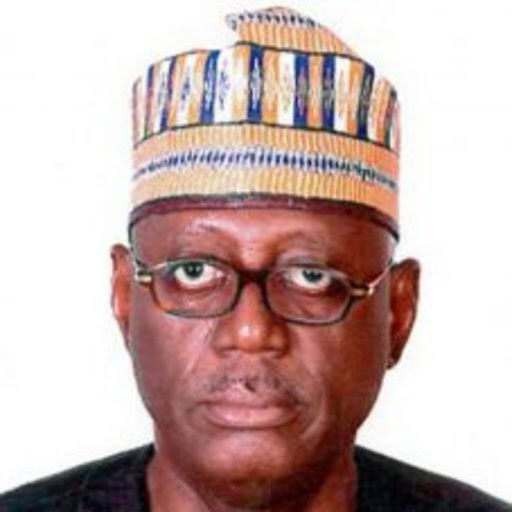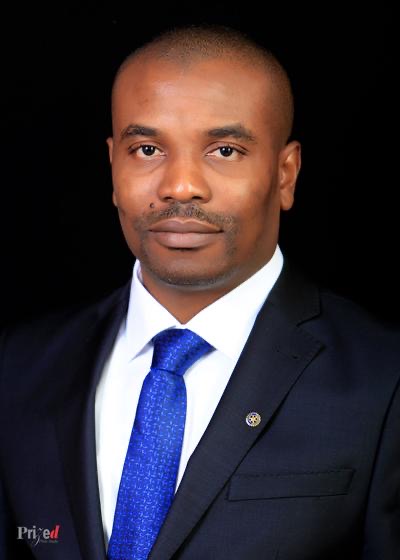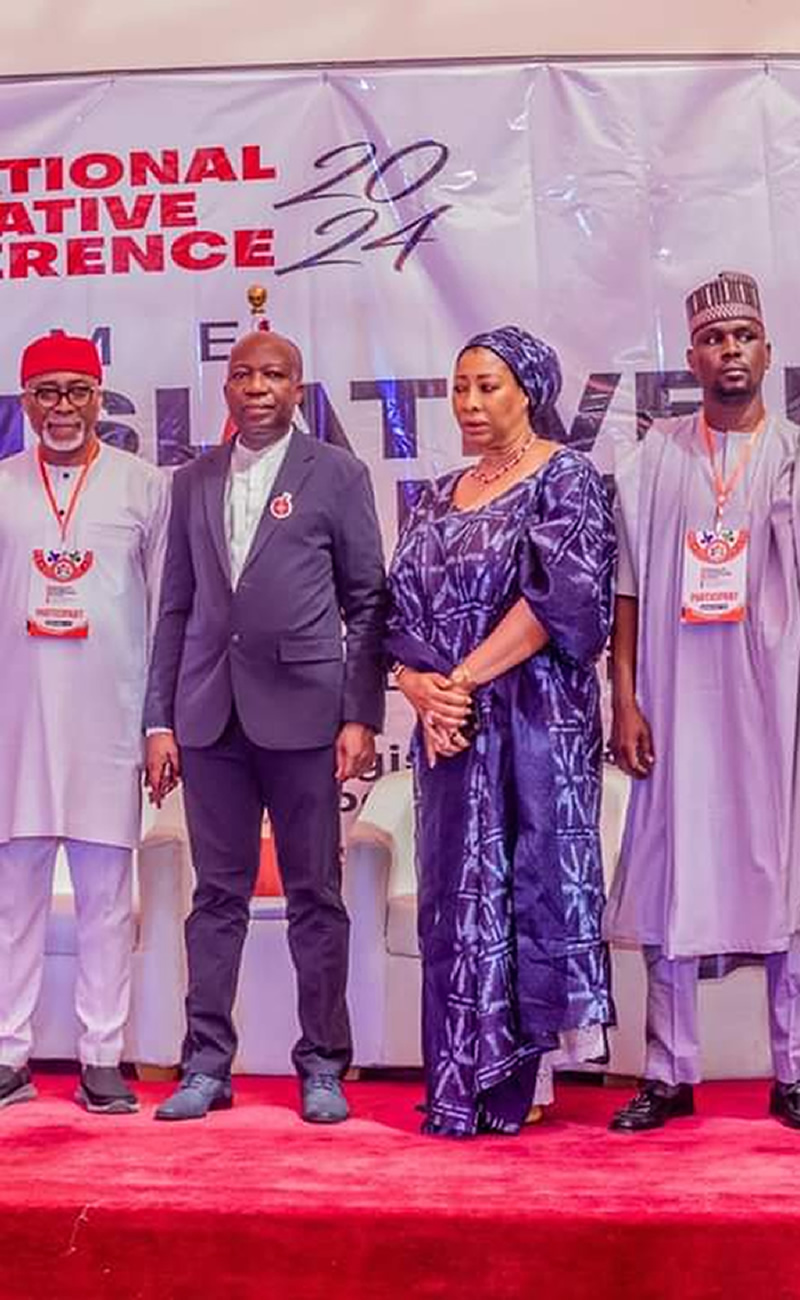In an exclusive interaction with OrderPaper, Professor K.M Waziri says that the educational system has gotten “rotten for too long a time” and needs a holistic review, one after the other.

Since its inception, the recently enacted Student Loan Act has encountered numerous hurdles and debates.
President Bola Tinubu had on 3rd April 2024 signed the Student Loan Repeal and Re-enactment Bill into law at the State House of Assembly in Abuja.
Before this, OrderPaper recalls that the Academic Staff Union of Universities (ASUU) faulted the federal government over the conditions for accessing the student loan scheme introduced by the President Tinubu-led administration, which according to them will keep students in debt.
The union further alleged that the student loan was a ploy to enrich a few individuals who owned private universities in the country.
The ASUU National President, Dr. Emmanuel Osodeke, asserted that if the government truly intended to help students, the proposed student loan needed to be made a grant rather than a loan.
These criticisms seem to have prompted the indefinite postponement of the scheme by the Federal Government, 48 hours before its scheduled launch as President Tinubu forwarded a letter to the Senate and the House of Representatives, seeking a repeal and re-enactment of the (Access to Higher Education Act, (Repeal and Re-Enactment) Bill, 2024, otherwise known as the Student Loan Act.
In an exclusive interaction with OrderPaper, Professor K.M Waziri, a lecturer at the Department of Public Law, University of Abuja voiced concerns over the poor articulation and identification of the problems facing the country.
Prof. Waziri maintained that in terms of loan payment, there have been no deliberate, fiscal or policy actions in governments in the past 20 years to show that the Federal Government is deliberate about creating an environment where people can be gainfully employed to pay their loans as at when due.
Find excerpts of the interview below:
Question: ASUU has continuously kicked against the student loans scheme. Why is that?
Answer: I’m not a member of the executive of ASUU, but I equally read what ASUU is saying and I share the fear of ASUU because we have grown to a level that some governments have made trusting government, a very difficult task and that is the unfortunate aspect of the Nigerian polity, that if you’re knowledgeable enough, trusting government has become a very scarce commodity and the body language of this government seems to be that the government wants to withdraw from funding education. One of the styles they want to adopt is that students must pay so that education will now be self-funded. ASUU has looked at the country’s political economy, our mismanaged population, those who are really out of school, and parents’ earning capacity. If that policy is brought, which is a foreign-aided policy against the Nigerian polity, the permanent effect will be so dangerous and at the end of the day, it will create more problems, that is the fear of ASUU and to me, it is reasonable.
Just like the President said when he was signing the bill, he said all of us here benefited from going to school and that is why we are here. All over the world, critical sectors of government are subsidised and all of those who signed, and brought those laws, are beneficiaries of subsidy. If you don’t plan, you can’t get it right. What we’re saying over time is, let the government plan properly so that we can adequately subsidise education for the betterment.
Moreso you cannot divulge Boko Haram from out-of-school children, you cannot divulge banditry in the Northwest as part of North Central from out-of-school children, we cannot divulge the kind of criminality going on in the Niger Delta from people who are not properly schooled, or not having opportunity to go to school. Part of the criminality that Nigeria is facing today is the neglect of education. The investment in education is not what to quantify even based on the UN or United Nations percentages, there must be intentional, deliberate policies that will actualise who we are, where are we coming from, and where we want to see ourselves.
Question: Are there any specific provisions within the student loan bill that you believe could be particularly detrimental to the accessibility and quality of higher education?
Answer: First of all, we have to appreciate that the government that thought like this should be praised for having this thoughtfulness. Most of us even at my level, we’re operators of scholarships or bursary awards. Now, there is no provision, to my understanding, in the student loans act that we can quarrel about based on the vision of those who nurtured it to this level, but what some of us are saying as much as we appreciate the law, there are fears. When you talk about a loan, it is a debt, which must be repaid. There have been no deliberate actions, fiscal actions or policy actions in governments in the past 20 years to show that they are deliberate about creating an environment where people can gainfully employ themselves or be employed, gainfully. As such, we’re talking about hundreds, from all faculties every year, from all universities and there is no enabling environment where they can employ themselves.
How do they pay the loan? This can be used against an opponent who is owing government tomorrow and wants to contest. The future of our children should not be made so that it could molest them. The person who is looking for a loan, if you are looking for an overdraft desperately when you go to the bank and they give you to fill in those tiny, tiny words, you don’t want to, you just want to sign it, because you need the money. I’m ambitious, I want to be a graduate, and I don’t mind the consequences, that are not properly explained.
Number two, we are talking about the Federal Government talking about student loans, can the Federal Government handle it alone? What about state or local governments? Did you know the population of states, Universities, State Polytechnic, Schools of Nursing and other ancillary higher institutions? Now, when you talk about Student loans at the federal level, I thought this government would start interpreting our presidential system as not only allowing law to function, but cooperation to function because of who we are where we’re coming from and what do I mean, law is to say that states are on their own, they are independent, such they do what they want, it will never benefit our presidential system of constitutional democracy. There must be cooperation where the executive and the federal will have to call the states, let’s key into this problem, what are your problems? Let’s see how we can key in, let’s see how this can come in, how this will be done, a proper cooperation for a very important policy, like education.
It is just like we’re having disjointed policies, the federal government is not living alone, it is a part of the states that makes the people for the federal government to cover. So if the federal government wants to have a water policy, it has to bring the state for cooperation, If you want to bring educational policy, you have to bring the state seriously for cooperation. We must dig in and have a cooperative presidential system. This madness of everybody interpreting the Constitution as if it is not about us is not helping matters. So that is one of the fears. But the idea itself is beautiful.
READ ALSO: Tinubu seeks repeal of Students Loans Act, seeks re-enactment
Question: There have been several calls for increased funding. Now, are there any alternative solutions that academics proposed to address the challenges facing higher education besides increased funding?
Answer: It is just like when we talk about state police. Nobody is talking about what is wrong with the police. What happened to the police overtime? And how can we solve it? Everybody is just saying, Let’s do state police, let’s do state police. You can’t give a dead person to someone. We have not identified the problem of what is happening in Nigerian police, then to learn to proffer solutions before we can now decentralise it or create another. Do the states know what it is about policing? If you don’t take care of the police, you create more insecurity in your state.
Now coming to education? Did we identify the problem for education, did we identify the role of corruption in our education system? We’ve created TETfund in terms of buildings, but have we seen what is happening to the operation, the buildings, and all those beautiful things, our level of corruption has become a corruption cartel. So we have to identify, what are the problems of our educational system, we’ve not articulated that properly. So look, we are not ready to sit down, we are politicising education. Education is not what you politicise because it is the livewire of our existence, our existence now and our existence in future, our ability to compete globally, is all about education, our ability to believe in peace, it’s all about education, our ability to feed ourselves, is all about education, our ability to live as humans, it’s all about education. So no amount of investment is little. We’re not thinking towards that direction. Some of the policies we’re taking are more political, not well thought out, so to say and it has to be thought out because it’s about today, tomorrow or next tomorrow of a livewire of a country.
So I am saying that as beautiful as the idea of the student loan idea is, I do not think there is proper articulation, to identify. If you ask those who are proponents, how many undergraduates do Nigeria have? In other countries, you cannot ask that question, they will give you an answer. But here, if you stop a certain Vice-Chancellor or the Federal University, and ask how many students do you have? He cannot give you. He’ll tell you we’re having about 10,000, meanwhile, some are spilling over. Even those who are managing the university, ask me, I’m in the faculty of law, now as a professor, how many students do we have, I don’t know. Meanwhile, there is supposed to be a board, where you’re going to be seeing everything running about the number in 100 level. They’re supposed to be information about that and everybody is assessing, but even as ordinary as that we don’t even have. So when we bring in things that because it is going to be giving out money because there’s poverty, people will say we are happy about it.
Just like these palliatives, what is it solving? That’s why we’ve been having policy somersault. Immediately, this government goes, you will discover the kind of problems it’s going to create because it is not well thought out and the next government will not be ready to take those burdens and before you know it will be abandoned. And this is the fear.
Why should you live in the country, where someone who is working in NIMASA, level 8 is paid 700,000 and a professor is paid 400,000? You didn’t want to look at that and you think it’s ordinary, you think it will not affect what you’re doing. When we were in primary school. If you are asked what do you want to be when students raise their hands, you will see, I want to be a teacher, you will hear, I want to be nice. When you ask why, they say, a teacher is a dignitary a nurse is neat. Nobody raises a hand to mention those professions now.
Question: There have been several cases of students leaving the country for greener pastures (seeking and gaining scholarships in other foreign countries). Don’t you think this student loan scheme will make students decide to stay back and school in their country?
Answer: I will need empirical research to answer this because we didn’t even want to identify, why are the students leaving. At what level are they leaving? What are they leaving to do? What are the advantages out there? I have students, those who read masters with me, who have to leave for the UK to go and redo their master’s and start PhD to have a residency and the moment when we were in university when we come back to holiday, our colleagues who are not in the university and college education will come and visit us in our rooms because we come back with a kind of civilization. We have portals who clean our room. When you go, they will open your room like a five-star hotel, remove your bed sheet and your shirts, wash it, iron it and keep it for you. The lecturers are earning a salary that can take them home, everybody is happy, the university is sending half of their students abroad to go and do their postgraduate studies. It was not a challenge, the economy can take because there are deliberate policies. Now those things have gone extinct.
Now, some students are living in school and they are the ones taking care of their younger ones to pay their school fees. How they survive nobody wants to know. Some students have to pay for accommodation through their nose.
As we are talking, we are interviewing without light, can you imagine a Federal University in FCT? We have not been having light for the past week. When I come to the office, I can’t do half of the work, my systems are off, they’re dead. If not because of this interview you will not meet me here. What are we talking about? People are sitting in their air-conditioned offices, they don’t even want to know what is happening in the universities. We don’t want to know what is happening in the universities. There’s a colleague of mine saying the money coming to the universities is enough to make the universities good, but the level of corruption of some of the Vice Chancellors is unimaginable. You have a vice chancellor, who has spent over 1.6 billion naira on estacode (travel allowance) for four and a half years. Go and check universities, travelling about doing what. There are a lot of multifaceted issues about the university system, about what is pushing the students. If he or she has a chance to go, they will go.
Question: According to the loan scheme, students should commence payment as soon as they can secure a job. What is the possibility of this, being fully aware of the high unemployment rate in the country?
Answer: It is a very difficult question. I don’t train my graduates to go and seek jobs, I train them to know how to get jobs, to know how to do jobs, I train my students to be intelligent enough to know how to survive. Part of survival is how to get a job, how to know where there is a job, how to do the job, not how to depend on a job. But most Nigerian universities have been turned to come and study and get jobs. This is what the government has done deliberately either through the funding of those who will teach the universities or the fiscal policies. Just yesterday, this country in the whole of Africa, came up and said there will be a discriminatory supply of power. If you are in Band A, you get 20 hours. Discriminatory supply of power and the small and medium scale enterprises can never be the percentage that can be on Band A and they are in Band A, they can’t pay. So what the government is saving is that for now, we cannot give you power, so we have to discriminate, against those who can pay, let them get power, those who cannot, let them die.
So those who are intelligent and want to give themselves jobs will have this disruption. The implication is this, they said until you get a job and one of the issues right now that the country has made, because there are no jobs, so there are unprepared politicians, so when you finish and there is no job, what you have to do is to join the bandwagon politics. When you want to contest, your co-contestants will come and say you are a debtor, because that has not been captured in the law, until when it is captured that it cannot be used against you, if you default. We did not look at our political economy, our characteristics, where are we? Where are we going? The issue remains that nobody should think of student loans. We culminate into more enrollment in tertiary education because those who are already enrolled, 80% of them need the loan. Meanwhile, the universities have what capacity of what they can admit. Already they’re over-subscribing. So, it does not mean that because there is a student loan, nobody should think that it will add more to the enrollment because already it is full.
If 100 Students come today, and they have money and they meet me today and say they want to go to school, I will tell them to go and Google and get University, provided they have the school fees, all of them by tomorrow night will get admission and the university will accommodate them without it being suffocated. What is happening, those who are making these policies, their children are abroad, they know what is happening, so why not take a little bit to bring ideas and see? It is about holistic investment in education, just like we need holistic investment policy issues in Nigeria police. So we need holistic investment and coordination in the national transport system. We cannot be doing governance by ad hoc policies. “This is beautiful, let’s do it, and we dump it here, after some time no, let’s create this commission tomorrow, let’s create this commission.” It has to be properly thought out. When it comes to education, it’s going to be sustainable.
Question: We know that It is one thing to create a scheme and another to implement it. From your perspective, how possible is it for the Federal Government to implement this programme?
Answer: It is possible. As I said before, it is going to bring a lot of dynamics and contradictions, more so that certain governments will not find the energy to continue. Concerning them, the intention is good, but I do not think it is well thought out to have a futuristic impact on the Nigerian education sector. It is just only to tell us that there is a student loan so everyone, every student can go to school. It’s funny. when a college of education cannot admit enough when polytechnics cannot admit enough. Why are there mushroom polytechnics and colleges of education in our School of Nursing?
The federal government thinks the constitution has barred them from engaging states and local governments in terms of cooperative presidential system. It’s not, let’s figure it out.
Question: What steps do you believe policymakers should take to address the concerns raised by the academic community regarding the student loan bill?
Answer: I do not think that the system wants to even listen to the academic community because what we have been having successively over the years, if I can remember is when the government nurtures a policy, it goes berserk about it, if you oppose it, you are an enemy of government, that has always been our system. Nobody wants to call anybody, come and sit down, let’s hear your own and until when we have that kind of government overtime before we can be making suggestions.
Most of us claim to be democrats, but because of long-term military rule, we’re having the military in governance, so much so that when you come out today, and you start accusing your governor of this, he will label you as an enemy, he doesn’t see you as a partner that you can be discussing and that is what is happening both federal, state and local government level.
If you criticise at a state level, you are an enemy of government and those who are eating from government don’t want to deal with you. We cannot have this mentality and we think that we want to have a collaborative government. So that mentality must be stopped. I do believe honestly that President Tinubu, who has those qualities, has not made enemies out of disagreement. I have seen him, there are certain things he has done that I will not do because of my temperament. He should transfer this to his aid, we need collaborative governance laterally, dimensionally, horizontally or whatever, we will need collaborative governance. The education system has gotten rotten for too long a time that it needs holistic, and non-rushing sectorally to look at it and one after the other. That’s the reason why when people are talking about devolution of power, devolution of power, when I sit down, and I look at certain sectors like education, and we’re talking about devolution of power, people just want power, they don’t even know what it entails. So sometimes the devolution we’re going to do is going to create more problems.
Question: What role do you see academic unions and associations playing in advocating for policies that support the needs and interests of both students and faculty within the higher education sector?
Answer: Let me tell you, I do not even think the government even cares about academic input. I’ll tell you, one of the earliest institutions that Nigeria created NIPS, the National Institute of Policy and Strategic Studies, how many of NIPS researches are used by the government talk less of we here every year and we are producing masters and PhD, turning out ideas. Where is it needed? Up till now, Nigeria has not produced keke napep and we have had faculties of engineering since before you were born. So, I do not think that there is a relationship between the town and the gown. There is no deliberate relationship because education has not been given the normal policy direction it is wanting because look, you can’t joke with certain sectors, if you joke with it, it will haunt you and that is happening in our country. So to answer your question, I do not think we have any role for now until it is needed.



